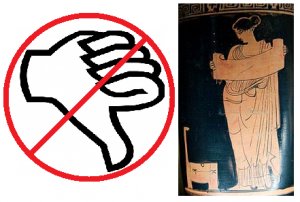You’ve been enjoying my recent author interview posts, I know, but this week I’ll take a short break from them. I’ve got at least two more interviews planned, so stay tuned.
Today I’ll discuss a poem and how it relates to writing. Sam Walter Foss wrote “The Calf-Path” in 1895. It’s a funny little poem bearing a significant message.
In the poem, a small calf wanders through the woods in a haphazard, zig-zag way, just ambling in an aimless manner. It tramples foliage as it goes. When a dog walks that way later, the hound finds it easier to follow the trampled path than to carve a new one. More animals follow, still weaving along the same sinuous, torturous path first made by the calf. In time, people choose that path and over the centuries it becomes a well-worn route, even a paved street, albeit a bent and crooked one.
Foss explains the metaphor toward the poem’s end. He’s speaking of “calf-paths of the mind,” how people find it easier to follow tradition and precedent than to break away from them.
How does this apply to writing? Perhaps:
- you’re basing the plot of your current story on a prior work, or
- you’re force-fitting the story into a particular genre thinking it would sell better, or
- you’ve portrayed one or more stereotyped characters, or
- as you crafted each paragraph and sentence, your inner critic silenced your muse whenever she urged you to experiment with something new.
True, sometimes paths get worn because they work well. The tried-and-true plot types have proven successful. Genres exists because readers (with their own mental calf-paths) prefer books like the ones they’ve already read. Certain character stereotypes can work because readers don’t require a full description—they can fill in the rest themselves. And sometimes your inner critic is correct to dissuade you from your muse’s most outlandish suggestions.
I’m not suggesting you avoid the calf-path. I just advise you to recognize when you’re on it and make a considered choice whether to stay or deviate. It’s akin to the thoughtful decision discussed in Robert Frost’s poem, “The Road Not Taken.” In that poem, the narrator states “long I stood/And looked…” implying some deliberation about the options.
I’ll conclude by paraphrasing Sam Foss:
Much with this blog post I could teach
But I am not ordained to preach
Nor in some wise didactic tribe
No, I am just—
Poseidon’s Scribe


